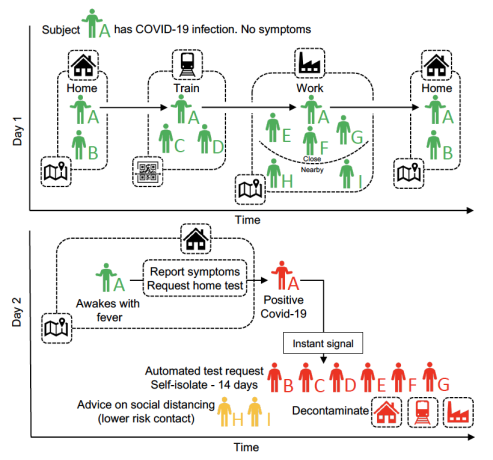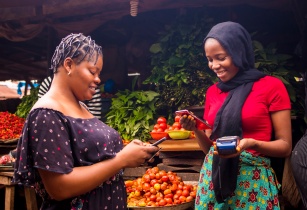As the team of Oxford University researchers has published results in Science on coronavirus transmission, Norwegian Institute of Public Health (FHI) and NHSX are set to assess the feasibility of developing mobile apps for instant contact tracing in record time
NHSX is a joint unit comprised of teams from NHS England and the UK’s Department of Health & Social Care.
If rapidly and widely developed, these mobile apps could help to significantly slow the rate of transmission and support countries to emerge from lockdowns safely, as restrictions are gradually eased.
Professor Christophe Fraser from Oxford University’s Big Data Institute, Nuffield Department of Medicine, and a lead author on the Science paper explained, “We need a mobile contact tracing app to urgently support health services to control coronavirus transmission, target interventions and keep people safe. Our analysis suggests that about half of transmissions occur in the early phase of the infection, before you show any symptoms of infection.”
Dr David Bonsall, senior researcher at Oxford University’s Nuffield Department of Medicine and clinician at Oxford’s John Radcliffe Hospital, remarked, “The mobile app concept we’ve mathematically modelled is simple and doesn’t need to track your location; it uses a low-energy version of Bluetooth to log a memory of all the app users with whom you have come into close proximity over the last few days. If you then become infected, these people are alerted instantly and anonymously, and advised to go home and self-isolate. If app users decide to share additional data, they could support health services to identify trends and target interventions to reach those most in need.”
According to the authors, a mobile app can reduce transmission at any stage of the epidemic, in countries or regions where the epidemic is just emerging, at the peak of the epidemic, or to support a safe transition out of restricted movement or lockdown. It could also help to reduce the serious social, psychological and economic impacts caused by widespread lockdowns.
Given the level of infection across much of Europe, the team believe ongoing development of a mobile app partnership across the union would massively reduce transmission and avoid a resurgence in the number of cases, providing an opportunity for all citizens using mobile contact tracing apps to contribute towards ending the epidemic.
The Oxford team highlight that the mobile contact tracing app should still be combined with isolation of cases, tracing and quarantine of contacts, physical distancing, scaled-up diagnostic testing, decontamination and hygiene measures.




































